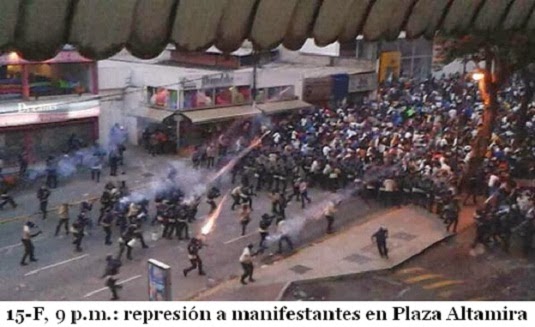Here’s something George Orwell wrote back in 1946 dealing with, among other things, the political writing of his day.
Bad writers, and especially scientific, political, and sociological writers, are nearly always haunted by the notion that Latin or Greek words are grander than Saxon ones, and unnecessary words like expedite, ameliorate, predict, extraneous, deracinated, clandestine, subaqueous, and hundreds of others constantly gain ground from their Anglo-Saxon numbers. The jargon peculiar to Marxist writing (hyena, hangman, cannibal, petty bourgeois, these gentry, lackey, flunkey, mad dog, White Guard, etc.) consists largely of words translated from Russian, German, or French; but the normal way of coining a new word is to use Latin or Greek root with the appropriate affix and, where necessary, the size formation. It is often easier to make up words of this kind (deregionalize, impermissible, extramarital, non-fragmentary and so forth) than to think up the English words that will cover one’s meaning. The result, in general, is an increase in slovenliness and vagueness.
. . . As I have tried to show, modern writing at its worst does not consist in picking out words for the sake of their meaning and inventing images in order to make the meaning clearer. It consists in gumming together long strips of words which have already been set in order by someone else, and making the results presentable by sheer humbug. The attraction of this way of writing is that it is easy. It is easier — even quicker, once you have the habit — to say In my opinion it is not an unjustifiable assumption that than to say I think. If you use ready-made phrases, you not only don’t have to hunt about for the words; you also don’t have to bother with the rhythms of your sentences since these phrases are generally so arranged as to be more or less euphonious. When you are composing in a hurry — when you are dictating to a stenographer, for instance, or making a public speech — it is natural to fall into a pretentious, Latinized style. Tags like a consideration which we should do well to bear in mind or a conclusion to which all of us would readily assent will save many a sentence from coming down with a bump. By using stale metaphors, similes, and idioms, you save much mental effort, at the cost of leaving your meaning vague, not only for your reader but for yourself. This is the significance of mixed metaphors. The sole aim of a metaphor is to call up a visual image. When these images clash — as in The Fascist octopus has sung its swan song, the jackboot is thrown into the melting pot — it can be taken as certain that the writer is not seeing a mental image of the objects he is naming; in other words he is not really thinking. Look again at the examples I gave at the beginning of this essay. . . . In [the example from a Communist pamphlet], the writer knows more or less what he wants to say, but an accumulation of stale phrases chokes him like tea leaves blocking a sink.
Here’s an example of exactly that kind of writing, which I’ve taken from an article in Anarchy: A Journal of Desire Armed. Unfortunately, the writing in this article is a lot like the writing in a lot of articles that appear in AJODA (right alongside an Anarchist Media Review
media review section that constantly complains about jargony
or dreary
writing in other, less widely distributed anarchist zines). I’ve chosen this passage in particular because the writer clearly seems to know what he wants to say, and what he’s got to say is basically true, but–well, let’s just try to read it.
As long as Anti-Imperialism is presented as the foremost or central contradiction of capitalism, it will have innate limitations which are constitutionally incapable of supercession.
In the first instance, Anti-Imperialism still has to account for the way it was used in the past, and will always for that reason bear the heavy burden of the crimes committed in its name. To those who fought against imperialism in the Philippines and Chile, in South Africa and Vietnam, one must take care to add those in East Germany, Poland, and Hungary, and those who fight today in Tibet.
The uncritical assumption of statist perspectives implicit in the positioning of the organization of the National Liberation Struggle as the revolutionary subject, conceals both the class divisions between the forces that make up this organization — especially those between the bureaucratic class-in-formation on the one hand and the working class, peasantry and those sections of the intelligentsia supporting independence on the other — and the common interest all proletarians have in the elimination of their elites, regardless of nationality. The establishment of sovereign government (that is, a state) as the revolutionary objective, carries with it similarly bourgeois assumptions. It partakes with enthusiasm of the artificial and arbitrary separation in the activities of capitalist national and international political economies created by international law. Anti-Imperialists declare the extra-national colonization of markets, polities, societies, and cultures to be somehow worse or different in essence from the exercise of the same principles of capitalist economy in the country of its origin (a contradiction is not overcome by references to internal colonies
). They take the borders of capitalist states more seriously, especially in the present epoch, than capitalists do themselves.
On the other side of the equation, then, Anti-Imperialism has been a means of avoiding recognition of the independent interests and struggles of the working class and peasantry in the imperial dependencies, save from the point of view of distortions created by the advancement of exogenous imperial interests. This lack of proletarian perspective allows Anti-Imperialism to become a weapon to be used against (competing) foreign exploitation without a critique of local inequalities and forms of domination, much less of the political economy as a whole. This kind of Anti-Imperialism is easy for the likes of Vladimir Putin (the pacifier of Chechnya) and the misogynists of Hezbollah to employ without damage to themselves. It also provides useful ammunition to that most perfect of modern princes, Hugo Chavez, in whom are embodied both the Leftist, pseudomodern authoritarianism of his friend and political patron, Fidel Castro, the Maximum Leader of Cuba, and also the right-wing pseudotraditionalism of fascism, as imparted by his mentor, the Argentine anti-semite Norberto Ceresole, author of Caudillo, ejercito, pueblo. La Venezuela del presidente Chavez [Leader, Army, People, the Venezuela of President Chavez.]o
o It is high time that revolutionaries make proper acknowledgement of the complementary parts played by Marxism-Leninism and Fascism, as two wings of the same general movement of reaction against the rising proletarian, peasant, and intellectual insurgency of thel ate 19th and early 20th centuries. The earliest conscious expressions of these twin tendencies, those of Lenin on the one hand and Mussolini on the other, grew from the same source: (Marxian) social-democracy. The use of conspiratorial, quasi-military organization, of fronts
and the infiltration of strategic organizations as a means to establishing influence, and then otion of themselves as the general staff
of some kind of alleged revolution embodied in their own seizure of state power, unite these post-social-democratic factions. So does their presumption that the working class itself, incapable of more than a trade-union consciousness
in Lenin’s infamous words, or unwilling to embark on crusades of national greatness (eg campaigns of forced capital accumulation, war), needs the Party, composed of this or that constellation of petit-bourgeois elements, at its head to lead it. To think that such tendencies, then or now, can be the allies of antiauthoritarian, anti-capitalist revolutionaries, is to ignore not just the overwhelming weight of the historical experience of the world’s proletarian revolutions, but the very material nature of the political economies and quality of life in the regimes created by these hyper-authoritarian Symbionese twins.
–Burt Green, Anti-Imperialism or Anti-Capitalism, in Anarchy: A Journal of Desire Armed 26.1 (Spring/Summer 2008). pp 41, 43.
How did you feel when you tried to read through this passage and the footnote? It actually makes several important points; I think at least one or two of the points it makes are both new and important. (For example, I think that the footnote at the end is really very sharp.) That’s the sort of thing that ought to be both fun and exciting to read. But in the entire passage I can think of only two places where the writing made me feel anything than a dull pounding on my forehead — They take the borders of capitalist states more seriously, especially in the present epoch, than capitalists do themselves,
and that most perfect of modern princes, Hugo Chavez
. The second phrase manages to be funny precisely because the pretense is watered by the sarcasm; the rest of the passge gives you the straight stuff and demands you drink it down. If we want to say the things we need to say, then we need to find better ways of saying it than this.
If you were going to try to rewrite a passage like this to try to make it more clear to those who haven’t spent years reading and writing in Marxist jargon, and more enjoyable to read even for those who have — to rewrite a passage like this so that the author’s point about anti-imperialist politics makes more of an impression than the dull, thudding drumbeat of his language — how would you go about it?
There are some obvious easy changes that you can make. Anytime someone writes a phrase like in the present epoch
you can just about always cross it out and write in today;
worker
or working-class
can be put anywhere that the author chose to put down proletarian,
and you can strike exogenous
and write in outside,
or replace the whole phrase save from the point of view of distortions created by the advancement of exogenous imperial interests
with something like except when the bosses are foreigners.
But other stale fixed phrases (This lack of proletarian perspective …,
… carries with it similarly bourgeois assumptions,
… the working class, peasantry and . . . intelligentsia …
) are harder to deal with. You could pretty them up a little by trimming unnecessary verbal filler and by taking out obviously pretentious words and replacing them with simpler ones. You can put lipstick on a pig, too. But the problem is that the dreariness of the writing has a lot to do with the dreariness of the thought itself. It’s not that the points being made are wrong, or even hackneyed, exactly. It’s that the approach to the point is hackneyed, that the writer can find no way of expressing what he wants to say except by leading you through this cut-and-paste collage of phrases from Marxist pamphlets and whitepapers. (As Orwell said, You see, he feels impelled
to write — feels, presumably, that he has something new to say — and yet his words, like cavalry horses answering the bugle, group themselves automatically into the familiar dreary pattern.
) That kind of writing needs more than copyediting; it needs to be rearranged or rewritten from the start, with paragraphs either thrown out entirely or transformed into something that you wouldn’t know for a rewriting of the original.
For example, let’s look at paragraph 3 and think about what you might do about a paragraph like this.
The uncritical assumption of statist perspectives implicit in the positioning of the organization of the National Liberation Struggle as the revolutionary subject, conceals both the class divisions between the forces that make up this organization — especially those between the bureaucratic class-in-formation on the one hand and the working class, peasantry and those sections of the intelligentsia supporting independence on the other — and the common interest all proletarians have in the elimination of their elites, regardless of nationality. The establishment of sovereign government (that is, a state) as the revolutionary objective, carries with it similarly bourgeois assumptions. It partakes with enthusiasm of the artificial and arbitrary separation in the activities of capitalist national and international political economies created by international law. Anti-Imperialists declare the extra-national colonization of markets, polities, societies, and cultures to be somehow worse or different in essence from the exercise of the same principles of capitalist economy in the country of its origin (a contradiction is not overcome by references to internal colonies
). They take the borders of capitalist states more seriously, especially in the present epoch, than capitalists do themselves.
Instead of that, you might write something like this:
The picture of the world that anti-imperialist rhetoric paints is a picture seen through the eyes of warring states. If you want to know who will make the revolution, it forces you to look for a national fighting force, organized by geographical or ethnic borders. If you want to know what kind of revolution they will make, it forces you to look for a new government — a government run by locals, after the foreign governments have been forced back over the border.
The only way that anti-imperialist has to talk about revolution is to stand at made-up borders and yell Stop!
— as if it made any difference whether it happens to be foreign bosses or local bosses who take control over workers’ jobs, culture, and living arrangements. Anti-imperialism takes the borders of capitalist states more seriously than the capitalists do themselves. This kind of revolution has nothing to say about what powerful people within the nation do to their victims — and particularly not what aspiring bureaucrats do to workers and intellectuals. It’s a distraction from workers’ real interest in getting out from under bosses, no matter where the bosses come from.
As far as I can tell, this would convey almost exactly the same meaning. There are some losses — for example, (a contradiction is not overcome by references to internal colonies
).
But I threw out the parenthetical because someone who was making the point clearly would not think that you could just stick that point where Green tried to stick it. It may have seemed like a good idea at the time, but if it did, it’s only because the rest of the paragraph consists of so many stock phrases strung together that just stringing another one in may have seemed like logic. But the comment in between the parentheses has to do with a particular way that some anti-imperialist writers have tried to adapt their rhetoric in order to avoid glossing over the internal
forms of oppression that Green says anti-imperialist rhetoric glosses over. For example, people who used this line often said that the white man’s government treats black people inside the borders of the U.S.A. the same way that it treats foreign people in the Phillippines or Vietnam; and you might say the same thing about groups of people who are oppressed within a post-colonial
country when a more powerful group takes over power from the old colonial government. But the parenthetical mentions this position without explaining any of that, or making any of it clear to anybody who isn’t already familiar with a lot of anti-imperialist jargon. And it just states that this adaptation of anti-imperialist rhetoric doesn’t actually solve the problem, without saying why it fails. If talking about internal colonies
doesn’t help, then you need to say something about why it doesn’t help, and it would probably take long enough that it belongs in a new paragraph or a footnote. If you can’t do that much, then you’d be better off not mentioning it at all.
And there are also some additions — a couple of attempts at shifting the emphasis or making use of some imagery. Because if I just stopped at cutting out the parts that had gone bad, then the leftovers would be wholesome enough, but not enough to be filling — a single paragraph that’s short and clear, but also a paragraph with nothing to really drive the point home. That would be fine if this passage was a brief stop along the way to some other conclusion. But it’s actually supposed to be about half of the essay’s conclusion.
And now that I mention it, that brings up another problem. If the simple statement of the point is as simple and boring as the simple statement of this point is (so–it’s a mistake for radicals to use an approach that doesn’t deal with oppression inside national
boundaries, because it’s the bossing that really matters, not where the boss comes from) then maybe the essay needs to say more than what it does, insead of just leaving off on such an obvious point. (For example, why spend so long making a point like this, when you could use that space to make a genuinely novel point, like the point about the similarities between conspiratorial Leninism and conspiratorial Fascism, instead of hiding that point away in a footnote?) So even this kind of rewriting, paragraph by paragraph, can only do so much. What a passage like this needs, in the end, is rethinking. What do you think? How would you do it? Given what he wants to say, how would you say it well?



